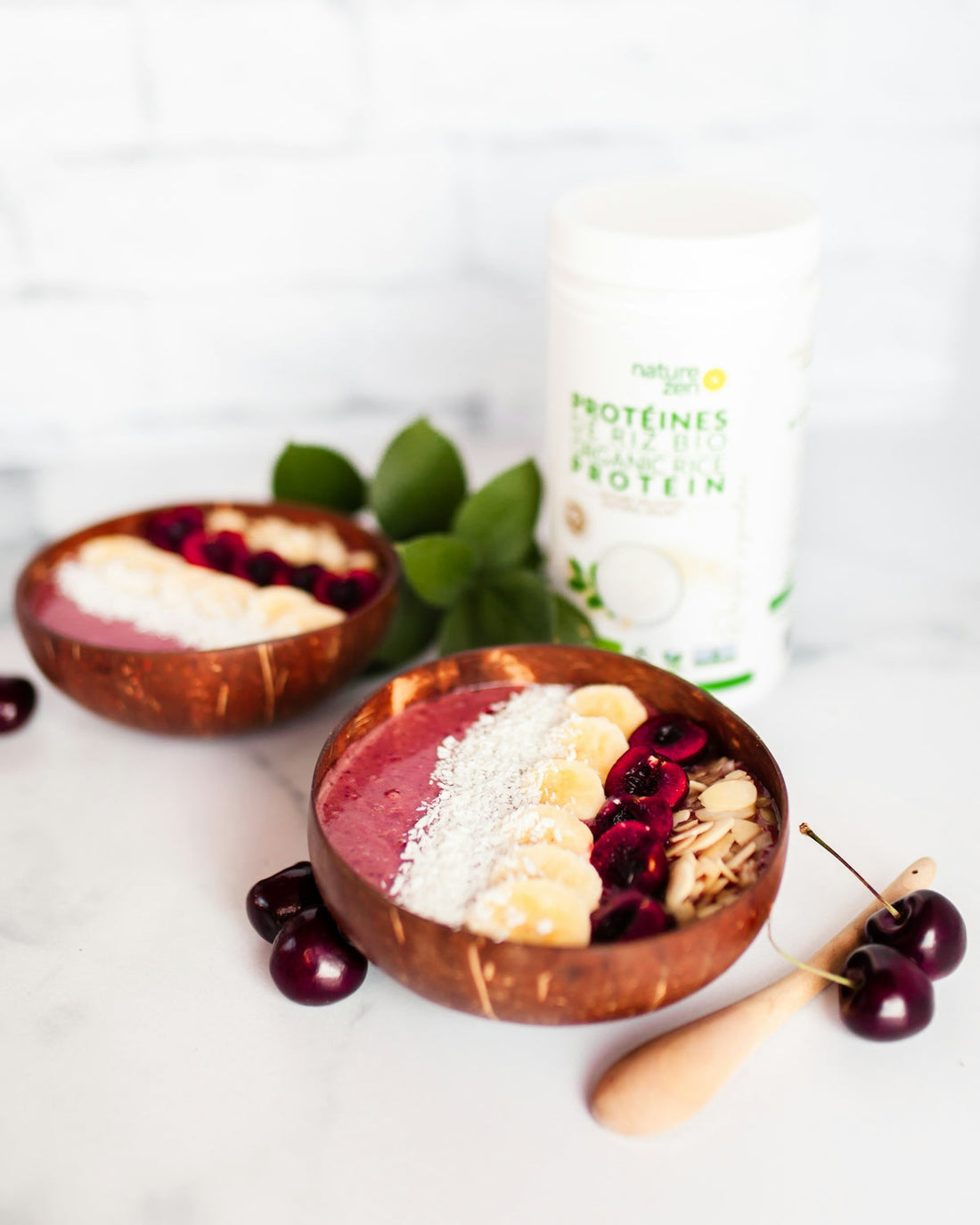
Plant-Based High-Protein Dishes: Fuel Your Body Consciously
Sophia AustinWelcome to a tastier path to wellbeing and strength. Plant-based protein is not just a trend; it's part of a movement towards conscientious eating that's both sustainable and beneficial for your health. In this blog post, we will delve into the world of plant-based high-protein dishes that can help fuel your body while aligning with more ethical choices.
Table of Contents
- Introduction
- What is Plant-Based Protein?
- Benefits of Plant-Based High-Protein Diet
- Top Plant-Based Protein Sources
- Delicious High-Protein Plant-Based Recipes
- FAQs
- Conclusion
Introduction
In recent years, more people have shifted towards a plant-based diet due to health concerns, environmental issues, and ethical considerations. But a common question arises: "How do I get enough protein on a plant-based diet?" Thankfully, nature offers an abundant supply of protein-rich plant foods that can power your body efficiently. We invite you to explore this culinary journey that promises both flavor and vitality.
What is Plant-Based Protein?
Plant-based protein refers to protein derived from plant sources. Understanding this is crucial as it underlines a significant shift away from animal-based diets. Typically, plant proteins include legumes, nuts, seeds, grains, and vegetables. These sources deliver not only protein but also fiber, vitamins, and minerals with lower calories and unhealthy fats.
Benefits of a Plant-Based High-Protein Diet
1. Improved Heart Health
Switching to a plant-rich diet can lower cholesterol levels, reduce blood pressure, and improve heart health. The absence of saturated fats, which are commonly found in animal products, helps lower the risk of cardiovascular diseases.
2. Enhanced Digestive Function
Plant-based foods are rich in dietary fibers that aid in digestion. They promote better metabolism and prevent digestive disorders, offering a healthier gut.
3. Environmental Sustainability
Adopting a plant-based diet reduces carbon footprint and supports environmental conservation. It is a more sustainable form of eating that aligns with eco-friendly practices.
4. Ethically Conscious
Plant-based diets allow individuals to make choices that reduce animal cruelty, aligning with ethical eating principles without compromising nutrition.
Top Plant-Based Protein Sources
Here are some powerhouse plant-based proteins to include in your daily diet:
- Lentils: Packed with protein and fiber, lentils are versatile and can be used in soups, salads, or main dishes.
- Quinoa: Not just a grain, quinoa is a complete protein with all essential amino acids. It serves as a nutritious alternative to refined grains.
- Chickpeas: Ground into hummus or roasted for a snack, chickpeas are a delicious protein source.
- Tofu and Tempeh: These soy-based products are excellent in absorbing flavors and are commonly used in a variety of dishes.
- Nuts and Seeds: Almonds, chia seeds, and flaxseeds are rich in healthy fats along with proteins.
Delicious High-Protein Plant-Based Recipes
Here’s a selection of high-protein plant-based dishes that uphold taste and nutrition:
Quinoa and Black Bean Salad
Ingredients:
- 1 cup quinoa
- 1 can black beans, drained and rinsed
- 1 bell pepper, chopped
- 1 avocado, sliced
- 1 lime, juiced
- 2 tbsp olive oil
- Salt and pepper to taste
Instructions:
- Cook quinoa according to package instructions.
- In a large bowl, combine quinoa, black beans, bell pepper, and avocado.
- In a small bowl, whisk lime juice, olive oil, salt, and pepper.
- Drizzle over the salad and mix well.
- Serve chilled or at room temperature.
Tofu Stir-Fry with Broccoli
Ingredients:
- 1 block firm tofu
- 2 cups broccoli florets
- 2 tbsp soy sauce
- 1 tbsp sesame oil
- 1 clove garlic, minced
- 1 inch ginger, grated
Instructions:
- Press and cut tofu into cubes.
- Heat sesame oil in a pan and sauté garlic and ginger.
- Add tofu cubes and stir-fry until golden brown.
- Toss in broccoli and soy sauce, cooking until broccoli is tender.
- Serve warm, possibly over brown rice or quinoa for an added protein boost.
For more delightful plant-based recipes and beauty guides, make sure to visit Sophia Austin Beauty & Recipes.
FAQs
Q: Can I build muscle on a plant-based high-protein diet?
A: Absolutely! Plant proteins can fuel your body effectively for muscle building when combined with strength training and balanced nutrition.
Q: Is a plant-based protein diet suitable for all ages?
A: Yes, with proper planning, plant-based diets can be rich and nutritious for individuals of all ages, keeping up with specific dietary needs.
Q: How do I ensure I'm getting enough protein?
A: Focus on incorporating a variety of protein-rich plant foods like legumes, grains, nuts, and seeds into your meals, along with tracking nutritional intake.
Q: Can plant-based protein foods help with weight management?
A: Plant-based diets are typically high in fibers and low in calories, aiding in maintaining a healthy weight by promoting satiety and reducing overall calorie intake.
Conclusion
Embracing a plant-based high-protein diet means a commitment to both personal health and global sustainability. The delicious recipes and abundant nutritional options ensure this lifestyle is as fulfilling as it is conscientious. Ready to make a change? Discover how you can transform your nutritional habits with nourishing plant-based dishes and beauty insights at Sophia Austin Beauty & Recipes.
Empower your plate, empower your life.



